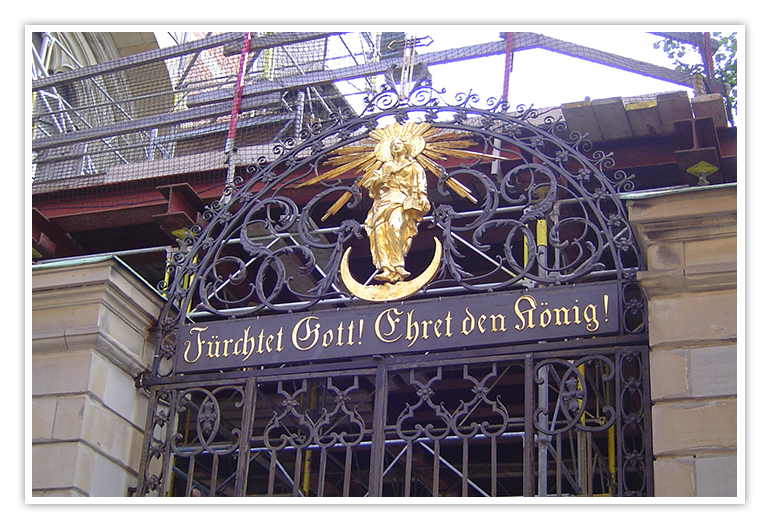Ready to learn more?
Get all the details straight to your inbox!

Smaller class sizes at Luther College means more individualized attention and better connections with your professors, classmates, and academic advisors.

To enrol as a Luther College student, simply fill out the University of Regina application form and select Luther as your campus of choice.

Luther students can register in Arts, Science, or Media, Art, and Performance. Luther students are U of R students and receive a U of R degree.

Luther College students are eligible for nearly $100,000 in academic awards – in addition to scholarships and bursaries awarded by the U of R.

Living in The Student Village at Luther College, our student residence, comes with a choice of healthy, nutritious meal plans. That means no grocery shopping, no meals to cook, and no dirty dishes to worry about. You can focus on your studies and wellness!

Luther College students are U of R students and receive all the same benefits. Upon graduation you will receive a U of R degree.

Luther College is a great choice for high school to university transition. Enjoy all the benefits of a larger campus, without feeling lost in the crowd. Our community is full of caring mentors and peers to ensure a positive student experience.

Wondering where to live? Our student residence, The Student Village at Luther College, is considered a great choice for first-year student accommodation. Individual private rooms mean you can stick to your own schedule and you never have to deal with roommate hassles.
Get all the details straight to your inbox!
The Protestant Reformation changed many things, but one thing it did not change was the substance of Christendom. Christendom was the alliance between the church and the state. Before Luther it had centered on the Pope and the bishops; after the Peace of Westphalia in 1648 ended the religious wars, it centered on national state churches. But for all the outward changes, the essence of Christendom had not changed. I argue that its essence was a theology of legitimacy which saw the social hierarchy as God’s created order and the authority of king or emperor flowing directly from God (with the church, of course, as the interpreter of God’s will).
The Reformation was not the first time the theology of Christendom had adapted to changes in the political order. The question I will address here is how this theology arose and what about it led it to dominating the church for 1600 years.
Jesus was a radical prophet who came preaching the imminent coming of the Kingdom of God. His message was one of radical equality and non-violence. He associated with the lower classes – who were regarded as unclean sinners by the religious establishment – teaching his followers to love their neighbours as themselves and to turn the other cheek. He told the rich to sell all they had and give it to the poor. The Roman authorities executed him for sedition. Yet within three centuries the Christian church would become the state church of the Roman Empire. I think three factors can explain how this dramatic turnaround happened: a protracted legitimation crisis within the Roman Empire; a philosophy using belief as a method of social control; and changes within the church’s own self-understanding.
First was the legitimation crisis within the Roman Empire. From the beginning of the state system some 5500 years ago, religion has been closely tied to the legitimacy of the regime. The Roman Empire – like all previous empires – had the problem of how to legitimize the regime when they ruled over diverse peoples with multiple languages, cultures, and religions. With the legitimation system of the republic destroyed (although the first emperors were careful to keep some of its outward forms), the Romans followed the example of most of the empires which came before them. The emperor became a god-king, a sacred person, whose worship transcended, but did not necessarily replace, the local deities of their subject peoples. Thus, Augustus was called the Son of God, Divine, God from God, Lord, Redeemer, and Saviour of the World.[1] The imperial cult demanded that everyone worship the emperor’s “divine spark,” or genius.
The problem was that this form of legitimation no longer proved effective. Augustus had seized power in a civil war and every ambitious general knew that he could do the same. The so-called Pax Romana was plagued by instability. Of the eighty-seven emperors between Augustus and the fall of the western empire in 476 CE, forty-seven of them, or 54%, died violent deaths. During the crisis of the 3rd century (235–284 CE) the empire was wracked by civil war, split into three parts, and nearly collapsed. In 306 CE Constantine was proclaimed emperor by his troops and after a few years of political maneuvering and marshalling his forces, he marched on Rome in 311 CE. He had been searching for a new basis of legitimizing his power and the solution he eventually turned to was a state church.
Religion is multidimensional, composed of rituals, community, experiences, symbols, myths and stories, morality and ethics, faith, and beliefs. Faith and belief are often confused in our time, when faith is often defined as a belief without evidence. But the two words have very different histories. “Faith” is derived from the Latin fides, a sense of trust, commitment, and loyalty. Fides is also the root of fidelity. “Belief” corresponds to the Latin assentus, to give intellectual assent to a series of propositions. Before the coming of the modern world, belief was only a concern of the educated elite – a tiny fraction of the population. This is only as it could be, since most of the population was illiterate. But the history of Christendom was one of using belief to legitimate the regime.
Belief is about social control. As Robert Bellah stated: “The effort to maintain orthodox belief has been primarily an effort to maintain authority rather than faith. It was part of a whole hierarchical way of thinking about social control, deeply embedded in traditional society.”[2] Doctrines and creeds could be used as loyalty oaths. From the standpoint of those in power, the reason for this is straightforward – one can never tell what is in a person’s heart, but one can compel assent to a series of propositions. Belief could be used to police behaviour, with punishment awaiting those who did not believe.
Constantine’s idea of using a state church to legitimate his power had a long philosophical pedigree. In Book X of The Laws, Plato argued for certain theological beliefs as necessary for the well-being of the state. Unbelief was to be a crime, punished by five years solitary confinement for a first offense and death for a second.[3] Philosophers and theologians elaborated variations on Plato’s doctrine right down to the Enlightenment. In The Social Contract, Jean-Jacques Rousseau called for a “civil religion,” the doctrines of which would be regarded as “sentiments of sociability, without which it is impossible to be either a good citizen or a loyal subject.”[4] Failing to subscribe to these beliefs would bring banishment, falsely subscribing to them would bring death. Today, ideological beliefs have joined religious doctrines as a means of social control, with the same bloody results.
Constantine’s recognition did not spark a revolution within the Christian Church. The church had long since assimilated into Greco-Roman culture and easily slipped into its new role without protest.
The earliest church in Jerusalem had tried to embody Jesus’ teachings. In the Book of Acts, Luke wrote: “All who believed were together and had all things in common; they would sell their possessions and goods and distribute the proceeds to all, as any had need.” (Acts: 2: 44–45). The earliest church also applied to Jesus all the divine titles which the emperor had given to himself. If Jesus was the Son of God, the Lord, the Saviour of the World, it meant that Caesar was not. Only Jesus had authority; all state power was illegitimate. The early church rejected every aspect of the imperial cult.
Within a decade the church had begun to spread into the Greek world – largely through the efforts of the Apostle Paul – and from the first moments began assimilating into Greco-Roman culture. Christianity spread with extreme rapidity and as it did so divisions and sects began to appear. Perhaps the most important change for this study was the declining faith in the imminent coming of the Kingdom of God. The earliest church believed that Jesus would return momentarily to usher in the Kingdom. By the end of the first century that faith was fading. As it did so, several things changed in the church’s self-understanding.
First, the church had always preached eternal life. The earliest Christian teachings were a continuation of Jewish apocalyptic thought. The Kingdom of God would see the radical transformation of the world, the end of injustice, want, and suffering, universal peace, and the resurrection of the dead. But as the church assimilated and connections to its Jewish roots were broken off, a Greek idea of immortality replaced the coming of the Kingdom. As Ernst Troeltsch wrote: “The idea of the Kingdom of God was replaced by ‘eschatology,’ Heaven, Hell, and Purgatory, immortality and the future life, a contrast with the teachings of the Gospel which is of the highest significance.”[5] Salvation now became a matter for individuals to seek, not a transformation of the world. The centrality of justice in Christian teachings declined and was supplanted by concern for individuals’ sin.
Second, Troeltsch argued that as apocalyptic expectations faded it was replaced by a self-understanding which instead saw a split between the church and “the world.”[6] This split diverted the tensions between faith and power into the direction of asceticism. Ascetics rejected “the world” but chose to withdraw from it rather than to seek any form of social change. But in the first two centuries of the Common Era the church as a whole still held itself aloof. They refused to participate in pagan civic festivals, which generated hostility and occasionally persecution. They refused to become magistrates of any office which required participation in a pagan or imperial cult. And they refused to serve in the army.
Third, as the church moved away from the Gospel message of radical equality and the concern for justice for the poor and oppressed, they became more accepting of the hierarchy of the Roman empire as part of God’s creation. As Paul wrote in Romans (some scholars argue this passage was added by a later hand):
Let every person be subject to the governing authorities: for there is no authority except from God, and those authorities that exist have been instituted by God. Therefore, whoever resists authority resists what God has appointed, and those who resist will incur judgement. (Romans 13:1-2).
This doctrine developed into a view of legitimacy that was hierarchical: from God, to the emperor, to the various imperial officials, to the people. The church reserved to itself, of course, the right to interpret what God intended. This attitude meant that no form of social change was possible, even theoretically. Even the persecutions of the church were attributed to the individual acts of “bad” emperors, not to the state as such. By the third century the church had become thoroughly assimilated. As Troeltsch states:
We must not forget the immense influence exercised by the growing worldliness of the church; the Church was largely ‘secularized’ by the world in the really bad sense of the word. The earnestness of the genuine early Christians was followed by the externalism of the nominal Christians, who really remained just what they were before.[7]
The legalization of Christianity by the Edict of Milan in 313 CE occasioned great relief and joy in the church but brought no fundamental changes to the way the church saw itself in the world.
Constantine wanted a unified church to legitimate his unified empire. That meant that the many Christian sects and theological schools had to be suppressed. Constantine turned to patronage and government largess to try to unite various factions.[8] When that proved to be ineffective, he turned to belief – church doctrine – to attempt the same. A council was held at Arles in 314 CE under imperial supervision which defeated the Donatist controversy. Constantine then proceeded to close Donatist churches and exile their bishops. A few years later he repeated this exercise at Nicea in 325 CE. With the emperor himself participating, the council adopted a creed which became the standard of orthodoxy. Bishops who voted no were exiled.[9] Constantine’s efforts were not particularly successful in stamping out differences within the church, but they firmly established the church as the handmaiden of the state. Christendom was born.
Christendom endured for 1600 years. It proved remarkably resilient in its ability to change and adapt to political changes over the centuries. But whether the relationship between the church and the state was harmonious or in open conflict – as during the Investiture Controversy or the many wars between the Pope and the Holy Roman Emperor – the basis of legitimacy remained the same. Authority flowed from God, to the king or emperor, to lower officials, to the people. The message of the church throughout this time is nicely expressed by the gate to the Hansa church in the old city of Stockholm: “Fear God, Honour the King.” (See Figure 1) 
War, of course, was accepted as a normal function of the state. The church blessed the fighting class and frequently tried to “spiritualize” their warrior codes, as in chivalry.[10] The doctrine of crusade was developed to proclaim holy war against, at various times, Muslims, heretics, pagans, and even the Christian Byzantine Empire. In all this time one would be hard pressed to find any war which the church did not declare to be legitimate and just.
Then in the mid-20th Century Christendom collapsed. While its end at first appears to be rapid, in fact it had been undermined for a long time. There are many reasons for this: the rise of ideology, especially nationalism, as an alternative; the development of science; public education and the advent of mass literacy; the invention of the mass media. People no longer looked upon the social hierarchy as God’s created order. The one factor most germane to this study is the rise of popular sovereignty as the basis of legitimacy in the modern era.
The idea that the people were the source of sovereignty was first articulated by Marsilius of Padua in 1324. It was developed further by the Federal Theologians during the Protestant Reformation, particularly the Puritans in England, who used it to justify putting their king on trial for treason and chopping off his head. It was the Puritan’s enemy, Thomas Hobbes (1651) who articulated the form popular sovereignty would take throughout the modern era, the social contract. The social contract was further elaborated by John Locke (1690) and Jean-Jacques Rousseau (1762) and put into practice by the American and French Revolutions.
Under Christendom, theologians had articulated an hierarchical basis for legitimacy where the state was part of God’s created order and authority flowed from God, to the king or emperor, to state officials, to the people. Popular sovereignty turned this upside down. In theory, the social contract is a covenant of each individual with every other to form the state. The state is an artifact, and the people were the source of authority which flowed from them to the executive and legislature. God was left out of the picture. While popular sovereignty slowly became the basis for legitimacy in nearly all modern states, many churches continued to cling to a symbolic structure which was already a hollow shell. In the disillusionment following the First World War, Christendom collapsed.
*William A. Stahl is Professor Emeritus at Luther College, University of Regina.
[1] Marcus J. Borg and John Dominic Crossan, The First Paul (New York: HarperCollins, 2009), p. 93.
[2] Robert Bellah, Beyond Belief (New York: Harper & Row, 1970), p. 221.
[3] Plato, The Laws, trans. by Trevor J. Saunders (Harmondsworth, England: Penguin Books, 1970), p. 445.
[4] Jean-Jacques Rousseau, The Social Contract, trans. by Maurice Cranston (Harmondsworth, England: Penguin Books, 1968), p. 186, first published 1762.
[5] Ernst Troeltsch, The Social Teaching of the Christian Churches, vol. I, trans. by Olive Wyon (Chicago: University of Chicago Press, 1960), p. 113, first published 1911.
[6] Ibid., p. 109.